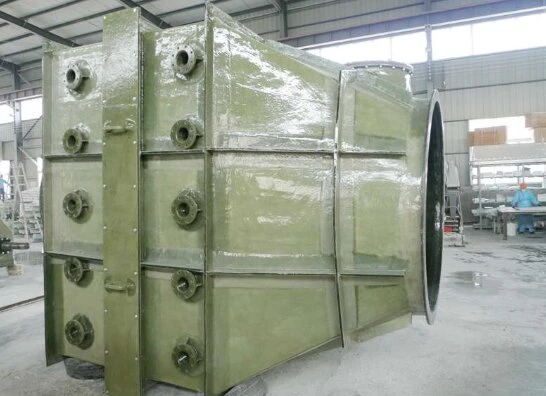
-
 Afrikaans
Afrikaans -
 Albanian
Albanian -
 Amharic
Amharic -
 Arabic
Arabic -
 Armenian
Armenian -
 Azerbaijani
Azerbaijani -
 Basque
Basque -
 Belarusian
Belarusian -
 Bengali
Bengali -
 Bosnian
Bosnian -
 Bulgarian
Bulgarian -
 Catalan
Catalan -
 Cebuano
Cebuano -
 China
China -
 China (Taiwan)
China (Taiwan) -
 Corsican
Corsican -
 Croatian
Croatian -
 Czech
Czech -
 Danish
Danish -
 Dutch
Dutch -
 English
English -
 Esperanto
Esperanto -
 Estonian
Estonian -
 Finnish
Finnish -
 French
French -
 Frisian
Frisian -
 Galician
Galician -
 Georgian
Georgian -
 German
German -
 Greek
Greek -
 Gujarati
Gujarati -
 Haitian Creole
Haitian Creole -
 hausa
hausa -
 hawaiian
hawaiian -
 Hebrew
Hebrew -
 Hindi
Hindi -
 Miao
Miao -
 Hungarian
Hungarian -
 Icelandic
Icelandic -
 igbo
igbo -
 Indonesian
Indonesian -
 irish
irish -
 Italian
Italian -
 Japanese
Japanese -
 Javanese
Javanese -
 Kannada
Kannada -
 kazakh
kazakh -
 Khmer
Khmer -
 Rwandese
Rwandese -
 Korean
Korean -
 Kurdish
Kurdish -
 Kyrgyz
Kyrgyz -
 Lao
Lao -
 Latin
Latin -
 Latvian
Latvian -
 Lithuanian
Lithuanian -
 Luxembourgish
Luxembourgish -
 Macedonian
Macedonian -
 Malgashi
Malgashi -
 Malay
Malay -
 Malayalam
Malayalam -
 Maltese
Maltese -
 Maori
Maori -
 Marathi
Marathi -
 Mongolian
Mongolian -
 Myanmar
Myanmar -
 Nepali
Nepali -
 Norwegian
Norwegian -
 Norwegian
Norwegian -
 Occitan
Occitan -
 Pashto
Pashto -
 Persian
Persian -
 Polish
Polish -
 Portuguese
Portuguese -
 Punjabi
Punjabi -
 Romanian
Romanian -
 Russian
Russian -
 Samoan
Samoan -
 Scottish Gaelic
Scottish Gaelic -
 Serbian
Serbian -
 Sesotho
Sesotho -
 Shona
Shona -
 Sindhi
Sindhi -
 Sinhala
Sinhala -
 Slovak
Slovak -
 Slovenian
Slovenian -
 Somali
Somali -
 Spanish
Spanish -
 Sundanese
Sundanese -
 Swahili
Swahili -
 Swedish
Swedish -
 Tagalog
Tagalog -
 Tajik
Tajik -
 Tamil
Tamil -
 Tatar
Tatar -
 Telugu
Telugu -
 Thai
Thai -
 Turkish
Turkish -
 Turkmen
Turkmen -
 Ukrainian
Ukrainian -
 Urdu
Urdu -
 Uighur
Uighur -
 Uzbek
Uzbek -
 Vietnamese
Vietnamese -
 Welsh
Welsh -
 Bantu
Bantu -
 Yiddish
Yiddish -
 Yoruba
Yoruba -
 Zulu
Zulu
Dual Laminated FRP Products for Enhanced Durability and Performance Solutions
The Evolution and Application of FRP Dual Lamination Products
Fiber Reinforced Polymer (FRP) technology has long been celebrated for its impressive strength-to-weight ratio, corrosion resistance, and adaptability in various applications. Among its myriad uses, FRP dual lamination products have emerged as a game-changer in industries ranging from construction to aerospace. This article explores the evolution, manufacturing process, benefits, and applications of FRP dual lamination products.
Understanding FRP Dual Lamination
FRP dual lamination combines two distinct layers of FRP, enhancing the structural integrity and functionality of the product. The inner layer typically consists of a resin-embedded fiber matrix that offers superior mechanical properties, while the outer layer provides additional protection against environmental factors. This dual-layer system synergizes the benefits of both materials, resulting in a product that not only stands up to mechanical stresses but also prolongs service life by resisting chemical attacks and weathering.
Manufacturing Process
The manufacturing of FRP dual lamination products involves several meticulous steps to ensure optimal performance. Initially, the chosen fibers—commonly glass, carbon, or aramid—are treated and aligned to maximize their mechanical properties. The resin, often thermoset or thermoplastic, is then applied to create a composite layer.
The two layers are bonded through various techniques, including co-curing, where both layers are cured simultaneously, or by using adhesives to combine already cured layers. The method of integration depends on the intended application and the desired characteristics of the final product, such as flexibility, strength, and resistance to extreme conditions.
Benefits of FRP Dual Lamination Products
The appeal of FRP dual lamination products can be attributed to multiple benefits
1. Enhanced Durability The combination of two layers provides a barrier against abrasion and chemical exposure, making FRP dual lamination products ideal for harsh environments. 2. Weight Savings While metals can be heavy and cumbersome, FRP materials significantly reduce overall weight without compromising structural strength.
3. Corrosion Resistance Unlike traditional materials, FRP does not rust or corrode, making it suitable for use in marine environments or chemical processing plants.
frp dual lamination product

4. Customizability The design flexibility of FRP allows manufacturers to tailor products to specific needs, whether it’s adjusting the thickness, fiber type, or surface finish.
Applications of FRP Dual Lamination Products
FRP dual lamination products are versatile and can be found in various sectors
- Construction In civil engineering, these products are used to reinforce structures, such as bridges and buildings, while reducing the need for extensive maintenance caused by corrosion.
- Aerospace The aerospace industry employs FRP dual lamination for components that require a high strength-to-weight ratio, such as fuselage shells and wing structures.
- Marine FRP is utilized in boat hulls and offshore structures, capitalizing on its resistance to salty environments and mechanical stress.
- Energy Sector Wind turbine blades made from FRP dual lamination technology are gaining traction, providing an ideal solution for lightweight and durable energy generation.
- Transportation Components of vehicles, particularly lightweight parts in electric cars, leverage FRP dual lamination to enhance fuel efficiency and reduce emissions.
Conclusion
FRP dual lamination products epitomize the intersection of innovation and practicality in modern engineering. By harnessing the unique properties of fiber-reinforced polymers, these products not only meet the rigorous demands of various industries but also pave the way for more sustainable and efficient practices. As technology continues to advance, it is likely that the applications and benefits of FRP dual lamination will expand, solidifying its place as a critical material in the 21st-century landscape. Whether in construction, aerospace, or any field requiring strong yet lightweight solutions, FRP dual lamination is a valuable ally in our quest for progress.









